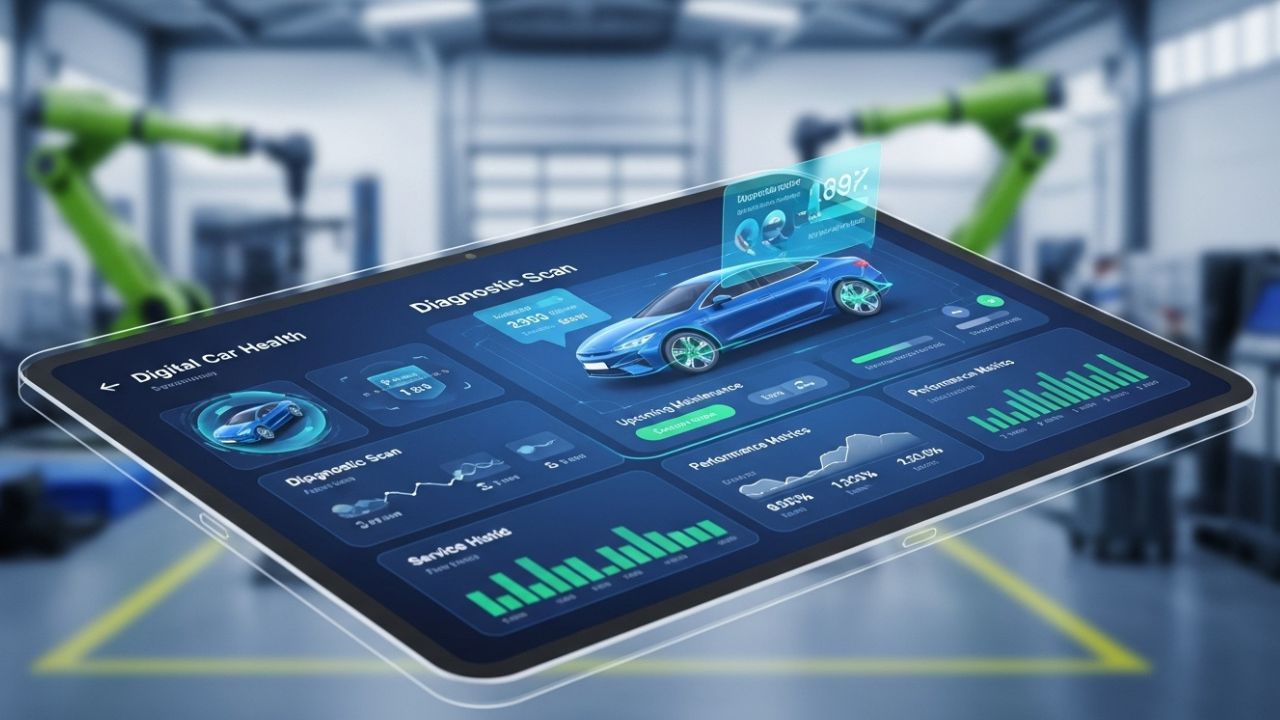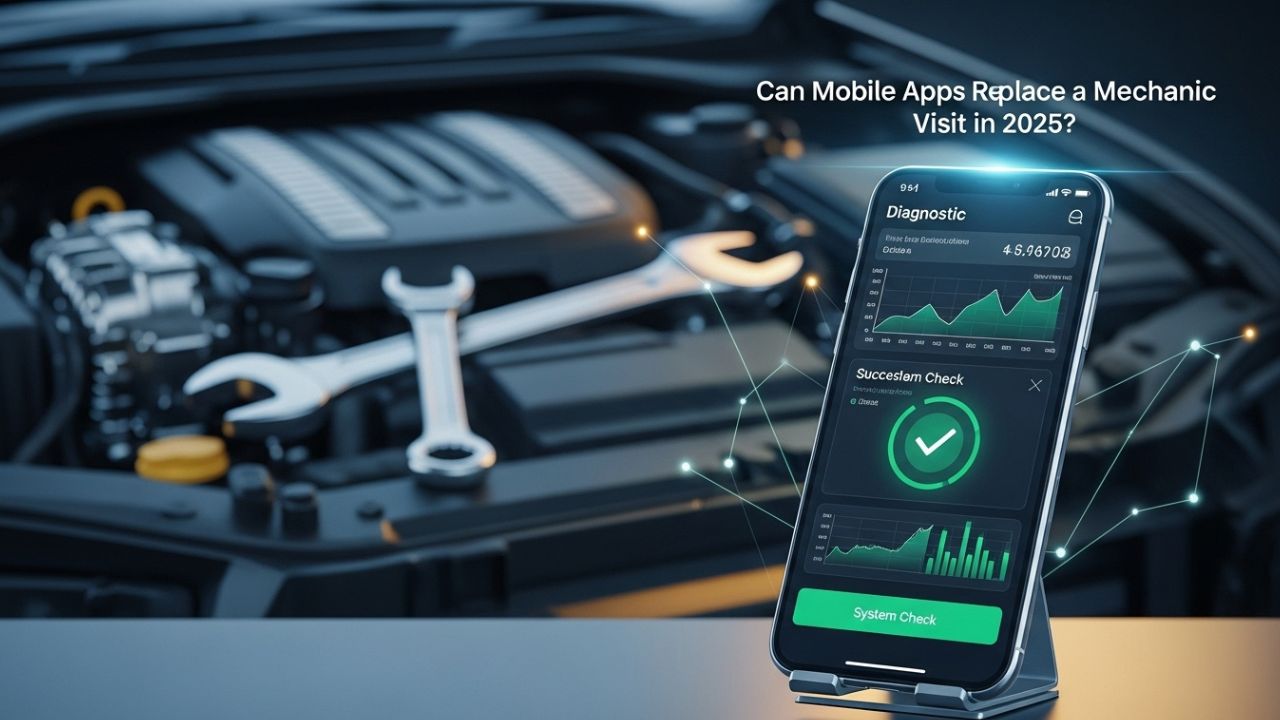In today’s fast-evolving automotive world, digital innovation is revolutionising how car owners manage vehicle maintenance and service history. Gone are the days of piling up physical service receipts and navigating complex spreadsheets. In 2025, digital car health report apps have become indispensable tools that offer real-time vehicle diagnostics, automate service reminders, and securely store detailed service records—all in one intuitive platform.
This article explores how cutting-edge apps are transforming car health tracking and record-keeping, their key features, benefits for owners and fleet managers, and the future of digital vehicle maintenance.
The Shift to Digital Car Health Management
Traditionally, managing a car’s maintenance schedule involved relying on paper invoices, workshop stamps, and memory. This system was often prone to human error, lost documents, and inconsistencies, leading to missed services or unnecessary repairs.
Digital car health report apps bridge this gap by integrating vehicle data with cloud-based platforms accessible on smartphones or desktops. These apps aggregate information from various sources—including onboard diagnostics (OBD-II) devices, manufacturer databases, and user input—creating a centralised, trustworthy digital record of a vehicle’s health and history. This paradigm shift has empowered car owners and service providers to adopt a proactive, data-driven approach in vehicle maintenance.
How 2025 Apps Track Car Health and Service Records
Modern digital car health apps leverage multiple technologies and data points, working seamlessly to help users maintain their vehicles efficiently:
Onboard Diagnostics (OBD-II) Integration
Many apps connect with OBD-II adapters plugged into the vehicle’s diagnostic port. These adapters relay real-time data on engine performance, fault codes, emissions status, fluid levels, and more directly to the app. This enables early detection of mechanical or electrical issues before they escalate.
Automated Service Reminders and Scheduling
Based on mileage, engine hours, or time intervals, apps automatically generate alerts for oil changes, tire rotations, brake inspections, or other routine maintenance tasks. Some apps even integrate with service centers, allowing users to schedule appointments directly from the app.
Secure Digital Record Storage
Instead of losing paper receipts or missing service details, users can upload service invoices, inspection reports, and warranties to their digital garage. This creates a chronological, easily searchable archive accessible anytime—ideal for resale value or warranty claims.
Detailed Vehicle History Reports
Whether managing a single car or an entire fleet, apps offer detailed reports summarizing maintenance actions, repairs, costs, and upcoming needs. This provides insights for budgeting and helps avoid costly breakdowns.
Cloud Synchronization and Multi-Device Access
Users can access their vehicle’s health information from any device—smartphones, tablets, or PCs—via secure cloud storage. Changes made on one device update seamlessly across all platforms, keeping information consistent.
Key Features of Top Car Health Apps in 2025
- User-Friendly Interface
Modern apps emphasize simplicity and clarity, with dashboards that visualize vehicle health at a glance and step-by-step prompts guiding users through maintenance tasks. - Multi-Vehicle Management
For families and fleet managers, apps support tracking multiple vehicles in one account, streamlining service coordination and expense tracking. - Expense Tracking and Analytics
Users can monitor fuel costs, service expenses, and overall vehicle spending with graphical insights to better manage their automotive budget. - Photo and Document Uploads
Uploading images of service bills, vehicle condition, or damage reports improves transparency and assists in maintenance verification. - Real-Time Fault Alerts
Immediate push notifications alert users to any detected faults such as low battery voltage, engine misfires, or emission failures, facilitating prompt repairs. - Customizable Reminders
Beyond standard service intervals, users can set custom alerts for tire replacement, insurance renewal, registration expiry, and more. - Integration with Mechanic Networks
Some apps partner with local and national service providers, enabling users to compare service packages, read reviews, and book appointments seamlessly. - Offline Functionality
Apps allow inspection and record entry even without internet access, syncing data once connectivity is restored.
Benefits of Using Digital Car Health Reports
- Enhanced Vehicle Longevity and Reliability
By tracking maintenance proactively and addressing issues early, vehicle lifespan is extended, and unexpected breakdowns are minimized. - Cost Efficiency
Timely servicing prevents expensive repairs, and analytics help users optimize fuel consumption and maintenance budgets. - Improved Resale Value
Detailed digital maintenance records validate vehicle condition to potential buyers, building trust and increasing resale price. - Time Savings and Convenience
Automated reminders and scheduling reduce hassle, helping busy vehicle owners adhere to recommended upkeep effortlessly. - Sustainability
By minimizing unnecessary repairs and unplanned part replacements, digital health reports contribute indirectly to environmental conservation.
Case Use: Fleet Management Made Easy
Fleet operators managing dozens or hundreds of vehicles find digital car health reporting indispensable in 2025. Real-time monitoring ensures each vehicle complies with safety regulations and maintenance schedules, reducing downtime and optimising operational costs. Centralised reporting aids in audit compliance and strategic fleet renewal planning based on usage and condition data.
Looking Ahead: The Future of Digital Car Health Reports
The future promises integration of AI and machine learning to predict vehicle failures with even higher accuracy, personalized maintenance plans, and further automation. Enhanced bi-directional communication between vehicles, users, and service providers will enable dynamic scheduling and supply-chain management for spare parts.
Expanded integration with electric vehicle battery management systems and autonomous vehicle platforms will make digital car health reports a ubiquitous component of mobility ecosystems by the late 2020s.
Conclusion
Digital car health report apps in 2025 represent a revolutionary leap in vehicle maintenance management. By seamlessly integrating real-time diagnostics, automated reminders, secure record storage, and user-friendly insights, these apps empower vehicle owners to stay ahead of maintenance schedules and extend their car’s life while reducing costs.
Whether for the average driver, an automotive enthusiast, or a commercial fleet manager, leveraging digital health reports translates into smarter, safer, and more convenient vehicle ownership. Embracing these technological tools today prepares drivers for the increasingly connected automotive future.




